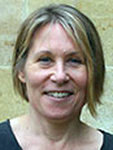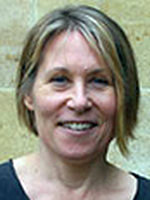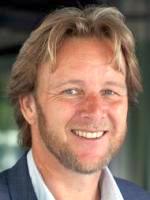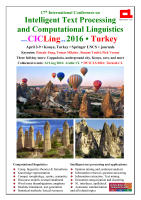|
Please help us to
improve the
Wikipedia article |
17th International Conference on Intelligent Text Processing and Computational Linguistics
April 3–9, 2016 • Konya, Turkey
Dedicated to the memory of Adam Kilgarriff
Collocated events: ACLing 2016: Arabic CL/NLP • TurCLing 2016: Turkic languages CL/NLP
Deadline: passed, but
submit while the system is open; contact us for late submissions
Publication:
Springer
Lecture Notes in Computer Science;
possibly journals in some cases
A special issue of Cognitive Computation is expected
Cultural program: three full-day tours to
Cappadocia, Konya, cave, and more.
Pre/post conf tours are tentatively planned for separate
fee.
Keynote:
Pascale Fung,
Tomas Mikolov,
Simone Teufel,
Piek Vossen
Awards: best paper (monetary prizes), best presentation, best poster,
best software.
See our verifiability, reproducibility, and
working description policy
Endorsed by the
Association for Computational Linguistics (ACL) (anticipated)
See also photos of past CICLing events
 |
 |
 |
 |
|||
|
Pascale Fung Hong Kong UST |
Tomas Mikolov Facebook Res. |
Simone Teufel U. of Cambridge |
Piek Vossen U. Amsterdam |
CICLing
2016
Call For Papers
This conference is the seventeenth CICLing event. Some comments about past CICLing conferences include: Best NLP conference in Europe (Dan Tufiş, 2010), Fantastic conference! (Martin Kay, 2004), Everything was just great! Super-hyper-ultra-well done! (Igor Mel'cuk, 2000). We consider the following factors to define our identity:
![]() High
reputation. CICLing is one of leading NLP conferences,
ranked
6th in Computational Linguistics by Google Metrics,
ranked 8th in
NLP by ArnetMiner, and B by
the
CORE list.
High
reputation. CICLing is one of leading NLP conferences,
ranked
6th in Computational Linguistics by Google Metrics,
ranked 8th in
NLP by ArnetMiner, and B by
the
CORE list.
![]() Good publication.
The Lecture Notes in Computer Science (LNCS)
published by
Springer is a prestigious book series /
journal highly valued in many countries for university promotion. CICLing is
included in ISI Conference Proceedings Citation Index, EI, and a number
of other important indices.
Good publication.
The Lecture Notes in Computer Science (LNCS)
published by
Springer is a prestigious book series /
journal highly valued in many countries for university promotion. CICLing is
included in ISI Conference Proceedings Citation Index, EI, and a number
of other important indices.
![]() Excellent
keynote speakers. We invite the most prominent scientists of the
field to give keynote talks that (unlike other conferences) are published
in extenso in the proceedings. Each keynote speaker also organizes an additional tutorial or
discussion. They usually participate in the cultural program, where you can interact
with them in an informal environment. [Past
participants' opinions]
Excellent
keynote speakers. We invite the most prominent scientists of the
field to give keynote talks that (unlike other conferences) are published
in extenso in the proceedings. Each keynote speaker also organizes an additional tutorial or
discussion. They usually participate in the cultural program, where you can interact
with them in an informal environment. [Past
participants' opinions]
![]() General interest.
The conference covers nearly all topics related to computational linguistics and
NLP. This
makes it attractive for people from different areas and leads to vivid and
interesting discussions and exchange of opinions.
General interest.
The conference covers nearly all topics related to computational linguistics and
NLP. This
makes it attractive for people from different areas and leads to vivid and
interesting discussions and exchange of opinions.
![]() Informal interaction.
The conference is intended for a
rather small group of
professionals. This allows for informal and friendly
atmosphere, more resembling a friendly party than an official event. At CICLing,
you can pass hours speaking with your favorite famous scientists who you
scarcely could even greet in the crowd at large conferences.
Informal interaction.
The conference is intended for a
rather small group of
professionals. This allows for informal and friendly
atmosphere, more resembling a friendly party than an official event. At CICLing,
you can pass hours speaking with your favorite famous scientists who you
scarcely could even greet in the crowd at large conferences.
![]() Excellent cultural program. The conference is
intended for people feeling themselves young in their souls, adventurous
explorers of both science and life. Our cultural program brings the
participants to unique marvels of history and nature often hidden from ordinary
tourists.
Excellent cultural program. The conference is
intended for people feeling themselves young in their souls, adventurous
explorers of both science and life. Our cultural program brings the
participants to unique marvels of history and nature often hidden from ordinary
tourists.
![]() From
Konya, we will go to a tour to
Cappadocia, an incredible place you will never forget.
From
Konya, we will go to a tour to
Cappadocia, an incredible place you will never forget.
![]() If
you have some extra time, you can travel to other wonderful places in Turkey,
such as
Pamukkale. Do it, you must see it!
If
you have some extra time, you can travel to other wonderful places in Turkey,
such as
Pamukkale. Do it, you must see it!
Accepted papers will be published in a volume of
Springer's Lecture Notes in Computer Science (LNCS), indexed in Scopus and expected to be indexed in the ISI WoS Conference Proceedings index,
or will be invited for publication in another volume or special issue of a journal derived from the conference:
Extended contributions of selected papers will be considered for publication in Cognitive Computation (ISI JCR impact factor 1.440).
A selection of papers will be invited for publication in International Journal of Computational Linguistics and Applications.
Extended versions of selected papers will be invited for publication in Polibits (Web of Science SciELO collection; DBLP).
Extended versions of selected papers will be invited for publication in a special issue of Computación y Sistemas (Scopus, Web of Science SciELO collection; DBLP).
A selection of papers may be invited for publication in Research in Computing Science (DBLP).
Collocated events will have their own publications.
CICLing 2016 will be held jointly with its collocated events:
ACLing 2016 will use a common reviewing procedure with CICLing 2016. Authors who want their papers to be considered for ACLing 2016, should mark it as one of the submission topics. See more details. Participants will be registered for the joint CICLing 2016 / ACLing 2016 event and will have access to all activities of both events.
TurCLing 2016 will use a common review procedure with CICLing 2016 for papers submitted jointly to TurCLing 2016 and CICLing 2016. Authors who want their papers to be considered for TurCLing 2016, should mark it as one of the submission topics. See more details. For papers submitted only to TurCLing but not to be considered for CICLing 2016, TurCLing will use its own submission and review procedure, with a deadline a bit later. TurCLing will probably have a joint registration with CICLing 2016 / ACLing 2016; this is not yet decided.
Organization
CICLing 2016 is hosted by the Mevlana University, Turkey, and organized by the CICLing 2016 Organizing Committee in conjunction with the Mevlana University, the Natural Language and Text Processing Laboratory of the CIC, IPN, and the Mexican Society of Artificial Intelligence (SMIA).
In general, we are interested in whatever helps, will help eventually, or might help computers meaningfully deal with language data.
The conference is intended to encourage exchange of opinions between the scientists working in different areas of the growing field of computational linguistics and intelligent text and speech processing. Our idea is to get a general view of the state of art in computational linguistics and its applications.
Areas of interest include, but are not limited to, the following topics, provided that the work is presented in computer-related or formal description aspects:
|
Computational linguistics research: |
|
|
|
|
Intelligent text and speech processing and their applications: |
|
|
|
We welcome works on processing any language (not necessarily English), though major languages are of more general interest. When discussing phenomena of languages other than English, please keep your discussion understandable for people not familiar with this language.
You can have a look at the contents of the proceedings of past CICLing events to get an idea of our interests. If not sure whether your topic is of interest, please ask us.
 |
Pascale Fung,
Hong Kong University of Science and Technology Keynote talk: to be announced Special event: to be announced |
|
 |
Tomas Mikolov, Facebook Research Keynote talk: to be announced Special event: to be announced Paper: A Roadmap towards Machine IntelligenceThe development of intelligent machines is one of the biggest unsolved challenges in computer science. In this paper, we propose some fundamental properties these machines should have, focusing in particular on communication and learning. We discuss a simple environment that could be used to incrementally teach a machine the basics of natural-language-based communication, as a prerequisite to more complex interaction with human users. We also present some conjectures on the sort of algorithms the machine should support in order to profitably learn from the environment. |
|
 |
Simone Teufel,
University of Cambridge Keynote talk: to be announced Special event: to be announced |
|
 |
Piek Vossen,
University Amsterdam Keynote talk: NewsReader: a machine for reading massive streams of news to generate event-centric knowledge graphs Abstract: The European project NewsReader created Natural Language Processing pipelines in 4 languages to process massive streams of news to detect what happened, who is involved, where and when. NewsReader makes a fundamental distinctions between mentions of entities and events in the news and instances of entities and events. The former are represented by semantic annotations in the text, whereas the latter are represented using URIs in RDF. The RDF representations of event instances allow us to create event-centric knowledge graphs (ECKGs) as opposed to the traditional entity-centric knowledge graphs that you find in DBpedia or Google knowledge. ECKGs more naturally capture dynamic knowledge and avoid duplication and inconsistencies. Our model for ECKGs naturally handles coreference, deduplicates, aggregates and represents the perspectives of the source of the information. The semantic annotation of the news by the pipelines in each language is structurally and conceptually interoperable: event information extracted from news in any language can be merged into a single RDF representation across languages. NewsReader processed millions of news articles and generated billions of RDF quads. Special event: Event granularity and identity The NewsReader project created a public database from a dump of the English Wikinews (about 18,000 news articles). A description of the data set is available. The Wikinews articles were processed by the NewsReader system and can now be accessed through the KnowlegeStore using SPARQL queries. The RDF representations of the events in the news are extracted from the separate news articles. This means that we did not apply any cross-document event identification to the data. We can now formulate SPARQL queries to find events with similar information in search for event identity. I will invite participants to define methods and ideas to search for identical events. Loose definitions of identity will lead to strong aggregation of information into a single event representation (extreme lumping), while strict definitions mean that every mention of an event is considered to be a unique event instance and no information is merged (which is the case for the current data). How much can you merge and aggregate information before it leads to inconsistencies? Granularity and identity of events can thus be modeled as a matter of degree . |
Traditionally, our keynote speakers give a formal talk, which is also published in extenso in the proceedings, and also organize a "special event" (a discussion, tutorial, experiment, or something just interesting). Such events, as well as publication of the keynote talks in the proceedings, are distinctive features of CICLing. [Past participants' opinions]
|
Submission; also joint CICLing/ACLing/TurCLing submissions |
Passed, but submit while the
system is open, or
contact us for late submissions. |
|
Full text for TurCLing only, via their own system |
Same as above |
|
Notification of acceptance |
Passed, but some papers are still in review (let us know if you really need it earlier, we might be able to help) |
|
Camera-ready for LNCS and pre-print versions of other papers |
March 20 |
|
Camera-ready for post-conf journals (not LNCS) |
post-conf |
|
Early registration (authors) |
Extended: March 24 |
|
Conference |
April 3–9, 2016 |
Submitting a paper constitutes a consent for publication and a promise in case of acceptance to attend the conference and to pay the fee. See more details in the legal notices.
Paper submission is divided into two phases:
Now, please express your interest now by registering a tentative abstract of the paper via the web submission system. At this stage, the full text is not required and the tentative abstract will only be used to assign reviewers for your paper. You can update abstract, title, or full text as many times as you wish while the paper submission system is open. At this stage we only need to know the topic of your paper in order to assign adequate reviewers.
By the full text deadline, the authors of papers registered at the previous step should upload the full text of the paper. No changes should be made after this date (but contact the organizers if you need to make changes).
The proceedings volumes will be published post-conference; pre-print versions will be available online during the conference.
Please fill in the REGISTRATION FORM to reserve your seats at the tours and to give us details about your participation.
The fee is: USD 660 full fee, USD 500 student discounted fee. See payment instructions below. Price in euros: € 590 full fee, € 450 student discounted fee.
For the same registration fee participants will have access to all events of CICLing 2016, ACLing 2016, and TurCLing 2016.
The fee is per participant and per paper. I.e., for each paper, at least one fee is to be paid: if a participant presents two papers, two fees are to be paid. On the other hand, a participant that does not present any paper should pay a fee.
For questions, please contact us at the registration@ address as indicated here.
By submitting a paper, at least one author has thereby promised, in case of acceptance, to pay the registration fee. We will not be able to publish any paper for which the fee has not been paid (except very few papers with a special discount; see below).
Registration does not include any hard copy proceedings: almost nobody needs hard copies nowadays. You can contact us if you really need a hard copy. The proceedings will be published post-conference; we expect within two months after the conference.
We try to make the fee as low as we could. Why this fee?
We do our best to keep the fee as low as possible. In particular, CICLing is completely non-profit: nobody of the organizers receives any remuneration.
CICLing gives much more than most conferences do. In particular, CICLing provides a greater number of keynote speakers, a much wider cultural program, lunches on all working days; this inevitably affects the fee. Lowering the fee beyond reasonable level would greatly decrease the quality of the conference and the benefits for its attendees, while making negligible difference for the budget of most participants, because:
Most universities allocate sufficient funding for attending conferences;
The fee is a minor part of your total expenses, as compared with the airplane tickets and lodging.
In addition to the expenses for each participant, the fee includes a small number of waivers for poor students. Namely:
If you pay: You pay a bit more than is spent on your participation: you also pay for students from poor countries;
If you don't: A waiver does not mean waiving the fee; instead, it means that others pay for you. Your waiver increases the fee for all.
The full fee is higher than the real expenses per participant, because it includes part of the student's expenses and waivers. The student fee is lower than the real expenses, because non-students partially pay for the students.
We have no governmental funding. Please let us know if you can help in any way in (or give advice about) obtaining sponsorship or another kind of help.
On reduced registration fee: A very limited number of reduced fees will be available. To apply, please contact us and thoroughly justify your application. We really mean this: thoroughly justify; very many of the participants are students from poor countries, explain why you believe that they should pay for you, and how come you plan to attend an international conference if you can't even pay the fee. Eligible for reduced registration are people from underdeveloped countries in case if their institutions really cannot paying the fee (generally not included: North America, Western Europe, China, South Korea, Japan). Authors must apply for reduced registration (clearly indicating the discount amount) before submission of their paper. No applications will be considered for already reviewed papers. Notes:
We are interested in a few volunteer helpers, please contact us. Speakers of the local language and residents of the local venue are preferred. The volunteers may or may not have preference in assigning fee reduction.
You can pay via either credit card or bank transfer.
Credit card option: A secure credit card payment link is available from within the registration form. Please fill the registration form first.
Bank transfer option: Please transfer the fund to the company that kindly manages our financial matters.
Please make sure for the complete fee to reach their account -- this most probably will mean that you will need to add some bank commission: say, USD 660 is not what you pay to the bank but what must arrive to our account; you will pay to the bank more.
That is: Bank transfer commission charge must be assumed by the participant.
Bank :
IS BANKASI
Branch : KIBRIS SEHITLERI SUBESI
(3364) IZMIR
Swift Code : ISBKTRIS
Account name : ALICO TURIZM GIDA
INSAAT SAN.VE TIC.LTD.STI.
IBAN:
For payment in Turkish Liras : TR50 0006 4000 0013 3640 0028 72
For payment in Euro: TR31 0006 4000 0023 3640 0006 87
For payment in USD: TR21 0006 4000 0023 3640 0006 73
All papers accepted for full oral presentation at CICLing 2016 will be published in a proceedings volume edited by Springer in its Lecture Notes in Computer Science series, which is indexed in many major indices including Scopus. Papers accepted for short oral presentation plus poster presentation will be published separately in special issues of journals, see Poster Session (let us know if you actually prefer this type of publication).
Papers submitted to CICLing 2016 can be also considered for ACLing 2016 and TurCLing 2016 if the authors indicate this; see submission guidelines. If the paper is deemed to be suitable for both conferences, the authors will be given a choice of where the paper will be published.
In addition to the text of the paper, authors are strongly encouraged to provide code and data that permit to reproduce their results, see CICLing verifiability, reproducibility, and working description policy.
Before submitting, please check our legal notices on video recording and on obligations of authors. In particular, by submitting a paper, at least one author thereby promises, in case of acceptance, to attend the conference in person to present the paper (if possible) and to pay the corresponding registration fee. Submissions are received electronically:
Contact: See email options, fax, and the street address on www.CICLing.org/contact.html.
Starting from 2011, CICLing implements a policy of giving preference to papers with verifiable and reproducible results, i.e., papers that provide the code and lexical resources that allow to reproduce the results. This is not a requirement. If for any reason you cannot accompany your paper with the code, go ahead and submit your paper normally.
A Special best verifiability, reproducibility, and working description award will be given at the conference.
For the time being, we encourage the submitted software to be anonymous but we do not require this: your data (but not the text of your paper) can disclose your identity if there is no reasonable way of avoiding
this.To submit your data for evaluation, upload them to our FTP site ftp://ftp.cicling.org/in/CICLing-2016, as a an archive (such as Zip). The name of the archive should be CICLing_NNN.ext, where NNN is the submission ID assigned by EasyChair, for example, CICLing_123.zip. If your data are too large to be uploaded, then please send us a URL where the data can be downloaded, and we will copy your files to our server (please use Subject: "CICLing_NNN software").
Please try to make your software self-contained by reasonably including whatever is needed to run it (such as specific versions of programs). Specifically, please avoid pointing to URLs where the data can be downloaded from; instead, please include the actual data whenever possible -- this is important for reproducibility because the data on remote servers might change (or become unavailable) at any moment, while attached data will be safely stored on our servers. All programs should be submitted in source code, and all data in clearly specified, preferably human-readable, format.
Please see a detailed description of the CICLing verifiability, reproducibility, and working description policy, our reasons and goals, and some FAQ. Note that by submitting your material you allow its free distribution in case of acceptance of your paper; see more details in legal disclaimers.
Best Paper and Best Student Paper award winners will receive monetary prizes from Springer.
The following awards will be given at the conference:
![]() Best Paper awards
will be
given by the
Award Committee
basing on the reviewers' scores and
judgment of the Committee members. The criteria taken into account are: novelty,
originality, and importance of the reported work and overall quality of the
paper.
Best Paper awards
will be
given by the
Award Committee
basing on the reviewers' scores and
judgment of the Committee members. The criteria taken into account are: novelty,
originality, and importance of the reported work and overall quality of the
paper.
![]() Best
Student Paper award will be given by the
Award Committee basing on the same
criteria, but choosing out of papers whose first author is a full-time student and
excluding the papers selected for a Best Paper award.
Best
Student Paper award will be given by the
Award Committee basing on the same
criteria, but choosing out of papers whose first author is a full-time student and
excluding the papers selected for a Best Paper award.
![]() Best
Verifiability, Reproducibility, and Working Description award
will be given by the Software Reviewing Committee
for the software accompanying the paper that best fulfills the goals of our
verifiability, reproducibility, and working description
policy. The criteria taken into account are: the clarity, simplicity,
completeness, and overall quality of the code accompanying the paper that allows
to verify and exactly reproduce the claims of the paper; see more details in the
instructions for software reviewers.
Best
Verifiability, Reproducibility, and Working Description award
will be given by the Software Reviewing Committee
for the software accompanying the paper that best fulfills the goals of our
verifiability, reproducibility, and working description
policy. The criteria taken into account are: the clarity, simplicity,
completeness, and overall quality of the code accompanying the paper that allows
to verify and exactly reproduce the claims of the paper; see more details in the
instructions for software reviewers.
![]() Best
Presentation award will be given to oral session authors by a ballot among all
participants. The criteria taken into account are: the clarity and overall
quality of the presentation, and in lesser degree the technical quality of the
presented work.
Best
Presentation award will be given to oral session authors by a ballot among all
participants. The criteria taken into account are: the clarity and overall
quality of the presentation, and in lesser degree the technical quality of the
presented work.
![]() Best
Poster award will be given to poster session< authors by
a ballot among all participants. The criteria taken into account are: the
clarity and overall quality of the poster, and in lesser degree the technical
quality of the presented work.
Best
Poster award will be given to poster session< authors by
a ballot among all participants. The criteria taken into account are: the
clarity and overall quality of the poster, and in lesser degree the technical
quality of the presented work.
Due to exceptionally good quality of the conference, Springer will contribute 1000 € for best paper awards. This fund will be distributed in the following manner:
400 € for best paper 1st place,
300 € for best paper 2nd place,
200 € for best paper 3rd place,
100 € for best student paper,
unless some of the places are shared, in which case the distribution will be different.
The papers accepted for the poster/demo session are anticipated to be published in a special issue of a journal, to be announced later. See here the guidelines for submitting and preparing your poster.
Poster session will be combined with the welcome party, so people will be in good mood when reading your poster. In our experience the authors often have better opportunity to communicate their idea to interested attendees via individual live interaction at a poster presentation than via standard talk. If you feel your paper is not competitive enough for the oral session, do go ahead and submit it: a poster can be an excellent opportunity for you to get feedback.
Immediately before the poster session the poster papers will be presented (better to say, announced) orally. Each presentation will be of one minute, and you can use a couple of slides. We recommend to use one or two slides to show the title and the main idea of your work, and maybe the main results, and the final slide to show an image of your poster, for people to recognize your poster during the poster session. The purpose of this one-minute presentation is not to explain your work in detail but to attract attention of people to you and your poster. If you succeed, you will then have two hours to explain your work to all interested people, during the poster session and in fact all the breaks on other days. Please only include the main selling points of your work in this short presentation; too dense information would only confuse people.
To streamline the session, we will ask you to send us your presentation, to be pre-loaded to our laptop.
There will be four days of technical program and three days of academic activities and cultural program (see our disclaimer about availability of tours). Here is a tentative general layout:
|
Sunday 3: |
Academic and cultural activities |
|
|
Monday 4: |
Keynote talk: Tomas Mikolov, regular talks, special event, short presentations + poster session + welcome party 1 |
|
|
Tuesday 5: |
Keynote talk: Piek Vossen, regular talks, regular talks, special event |
|
|
Wednesday 6: |
Academic and cultural activities |
|
|
Thursday 7: |
Keynote talk: Simone Teufel, regular talks, special event, short presentations + poster session + welcome party 2 |
|
|
Friday 8: |
Keynote talk: Pascale Fung, regular talks, special event, awarding and closing ceremony |
|
|
Saturday 9: |
Academic and cultural activities |
If you don't have time for the cultural program, you can arrive on Monday and leave on Friday; you will miss some cultural activities.
Accepted papers announced.
Schedule and presentation modality announced. Still tentative, some changes may happen. We are working on linking the papers in that list to the full text PDF.
During the conference we will have three full-day tours: on Sunday 3, Wednesday 6, and Saturday 9. We will visit the Cappadocia region with wonderful landscapes, the Tinaztepe cave, and many other attractions.
See updated information on our cultural activities.
See applicable conditions and disclaimers.
It is convenient for the participants to stay in the same hotel or nearby hotels, to facilitate informal interaction. Usually our participants form ad-hoc informal companies in the hotel reception to go to some restaurant, local sightseeing, etc. All cultural activities will start from the official hotel. We suggest you not to book a different hotel.
The recommended hotels are as follows. The conference bus and tour buses will pass by these hotels. There will be discounted rates at these hotels (indicated in the table). All rates are Bed & Breakfast, VAT included. All three hotels are very near from each other; the first two are in the same building.
| Main, recommended: | Ibis Konya | ☆☆☆ | single € 40, double € 53 | Address: Seker Mah Cevre Yolu Cad No. 36, Selcuklu, 42020 Konya |
| Additional: | Novotel Konya | ☆☆☆☆ | single € 60, double € 80 | Address: Seker Mah Cevre Yolu Cad No. 38, Selcuklu, 42080 Konya |
| Additional: | Anemon Konya | ☆☆☆☆ | single € 53, double € 70 | Address: Isıklar Mah. Belen Sk. No. 3, Selcuklu, 42110 Konya |
How to get the discount: A company offered us a discount. However, we found that some people can probably get even better price booking trough booking.com or a similar service, probably because they have a VIP status or some discount agreement with such a service. So we recommend:
Try booking via a service such as booking.com to see if you get a better discounts there. Some people with VIP account at booking.com reported about € 5-7 per night better price.
If you don't get a better price than the one indicated in the table, then send your booking details (dates, requirements, etc.) to cem@claros.com.tr; he will book for you with the price indicated in the table.
Please see updated local information.
By submitting a paper or attending the conference you accept the following terms:
Obligations of the authors. Submitting a paper constitutes a consent for publication, acceptance of the terms specified hereby, and a promise in case of acceptance to provide a correct and complete camera-ready version of the paper in editable (source) format, a duly filled copyright transfer form, to attend the conference (if possible), and to pay the registration fee, except in the cases agreed upon in due time with the organizers.
Software and data. Software and data accompanying the paper will be treated in the same way as the paper itself in that in case of acceptance, free access to this material can be provided to the readers of the paper or to public. By submitting software or data, you agree that in case of acceptance, it can be freely distributed by the organizers, and anybody is allowed to copy it. This also applies to the cases when you provide only a URL: you agree that the organizers can store a copy of the data accessible via this URL and, in case of acceptance, freely distribute this copy. While you cannot restrict copying of the submitted data (otherwise don't submit it), you can restrict using your data by including a reasonable no-nonsense license, which should allow the use of the data for research purposes.
Cultural program. The cultural program is a courtesy of the organizing committee provided "as is" and intended to help the participants in visiting certain places, which they visit under their own risk and responsibility. Quality and safety. Some or all of the cultural program activities may be organized not professionally but by volunteers. We will make any reasonable effort in order for the activities to be interesting, well-organized, and safe, but we cannot guarantee any particular quality of service. Some activities may require physical effort, such as much walking or hill-climbing, and/or rely on the use of public transportation.
Force-majeure. Though so far no tours have been cancelled due to force-majeure circumstances at any of past CICLing conferences, the following formal disclaimer applies: Some or all of the cultural program may depend on weather conditions, technical, political, or other circumstances. Permission for transportation or visiting specific places may depend on the authorities and not on the organizing committee; thus the corresponding tours can accordingly be cancelled at any moment without prior notice. Since all expenses are done in advance and are non-refundable, in case of cancellation of the tours no refund can be offered to the participants. The organizers may or may not be able to provide alternative cultural or academic activities instead of cancelled tours.Video recording. All CICLing-related activities, both academic and cultural, may be video recorded, photographed, and/or live video broadcast over the Internet or otherwise. The organizers may make the recordings and photos publicly available or provide them to third parties for any legal purpose, including storage and distribution. Unless otherwise explicitly communicated to the organizers in advance, by submitting a paper, registering for the conference, or attending the conference you authorize the organizers, attendees, or persons authorized by the organizers to video record, photograph, and/or video broadcast all conference activities, including your presentation, and to make these video recordings and photos publicly available and/or available to any third party for any legal purpose, and you also promise to explicitly confirm this authorization, in writing or otherwise, if later asked to do so by the organizers. If this is a problem, please contact us in advance.
General disclaimer. The following text does not imply any specific risk for CICLing attendees; this is a standard legal disclaimer generally applied to any public event in any part of the world: No special insurance, medical service, or security measures are guaranteed to be provided for the conference. The participants are advised to arrange with a third party for their travel insurance that includes international medical coverage, as well as to observe the standard safety precautions. The participants will take part in all activities of the conference entirely on their own risk. The organizers shall not be liable, to the extend permitted by law, for any illness, injuries, stolen objects, or any other problems that the participants may face during the cultural or academic program of the conference.
General Chair: Alexander Gelbukh
Organizing Committee
| Hatem Haddad | Chair | Mevlana University | |||
| Armağan Ozkaya | Mevlana University | ||||
| Niyazi Serdar Tunaboylu | Mevlana University | ||||
| Alaa Eleyan | Mevlana University | ||||
| Mustafa Kaiiali | Mevlana University | ||||
| Mohammad Shukri Salman | Mevlana University | ||||
| Gülden Eleyan | Mevlana University | ||||
| Hasan Ucar | Mevlana University |
Software Reviewing Committee of CICLing 2016
Ted
Pedersen
Florian Holz
Miloš Jakubíček
Sergio Jiménez Vargas
Miikka Silfverberg
Ronald Winnemöller
Best Paper Award Committee of CICLing 2016
Alexander Gelbukh
Eduard Hovy
Rada Mihalcea
Ted Pedersen
Yorick Wiks
Please distribute the CFP! Here is a poster in different formats, please hang it on a wall in your University:
| Plain text |
 |
![]() Return to the
top of the page.
Return to the
top of the page.




(This conference is not affiliated in any way with the
18th WASET
ICCLITP 2016 conference,
code 16TH08ICCLITP,
in Bangkok, Thailand, August 2016, which copied our wording,
or with their
"Advances in Computational Linguistics and Intelligent Text
Processing" journal issue.)